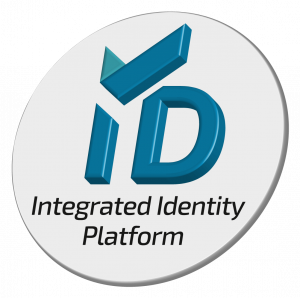The Weekly Cypher is specially curated to keep you up-to-date on the latest in cybersecurity, biometrics, and related news and innovations. Here are a few of the headlines you might have missed this week.
Unbiased algorithms can still be problematic | TechCrunch
Creating unbiased, accurate algorithms isn’t impossible — it’s just time consuming. “It actually is mathematically possible,” facial recognition startup Kairos CEO Brian Brackeen told me on a panel at TechCrunch Disrupt SF. Algorithms are sets of rules that computers follow in order to solve problems and make decisions about a particular course of action. Whether it’s the type of information we receive, the information people see about us, the jobs we get hired to do, the credit cards we get approved for, and, down the road, the driverless cars that either see us or don’t, algorithms are increasingly becoming a big part of our lives. But there is an inherent problem with algorithms that begins at the most base level and persists throughout its adaption: human bias that is baked into these machine-based decision-makers.
FBI unlocked an iPhone X by forcing suspect to use Face ID | CNet
Your face can and will be used against you. During an FBI investigation of six Ohio men charged with sexually abusing children and creating child pornography, agents forced one of the suspects to unlock his iPhone X by showing his face to the phone. On Aug. 10, federal investigators searched Grant Michalski’s home in Columbus, Ohio, and found an iPhone X. Agents required him to put his face in front of the phone to unlock it, according to court documents. “The phone was unlocked pursuant to the facial recognition feature on the iPhone X, and your affiant was able to briefly review the contents of the phone,” the document said.
Travelers to New Zealand Could Face a $3,000 Fine for Refusing ‘Digital Strip Searches’ | TIME
Visitors to New Zealand could face an unwelcome choice beginning this week: relinquish your cell phone password, or pay a $3,000 fine. Travelers who refuse to provide the pass codes to their digital devices or unlock them with biometric data such as fingerprints will face fines of up to NZ$5,000 (US$3,284) under New Zealand’s new Customs and Excise Act of 2018, which came into effect Monday, the New York Times reports. The law, which applies to both foreign visitors and New Zealand citizens, authorizes officials to demand “codes, passwords, and encryption keys” or other information required to access an electronic device.
Financial Sector Data Breaches Soar Despite Heavy Security Spending | Dark Reading
The preparedness of banks to deal with threats, such as a recently reported plan by criminals to launch mass attacks on ATM machines worldwide, would appear to be shaky at best considering the number of data breaches in the financial sector this year. Security vendor Bitglass recently analyzed data breaches disclosed by banks, insurance companies, investment firms, and other financial services institutions thus far in 2018 and compared it with the same data from two years ago. Between January and August this year, financial firms disclosed three times as many breaches as they did in the same period in 2016—103 in 2018 compared to 37 two years ago. The top three breaches alone this year compromised more records than the 64,512 records exposed in all of 2016, Bitglass said.
Singapore to use facial recognition for national digital identity | GovInsider
Singapore will adopt a centralised biometrics identification system as part of its National Digital Identity (NDI) system. “We want to extend this biometrics system as a service,” said Kwok Quek Sin, Senior Director of NDI from the Government Technology Agency (GovTech), at a session during the inaugural GovTech STACK Summit. “We will start off with facial recognition,” he added. GovTech is creating a centralised biometrics system to save users the hassle of repeated enrollments. Citizens will only need to register their biometric information once under the centralised NDI system, and from there on, will no longer need to personally enroll this information for every service.





